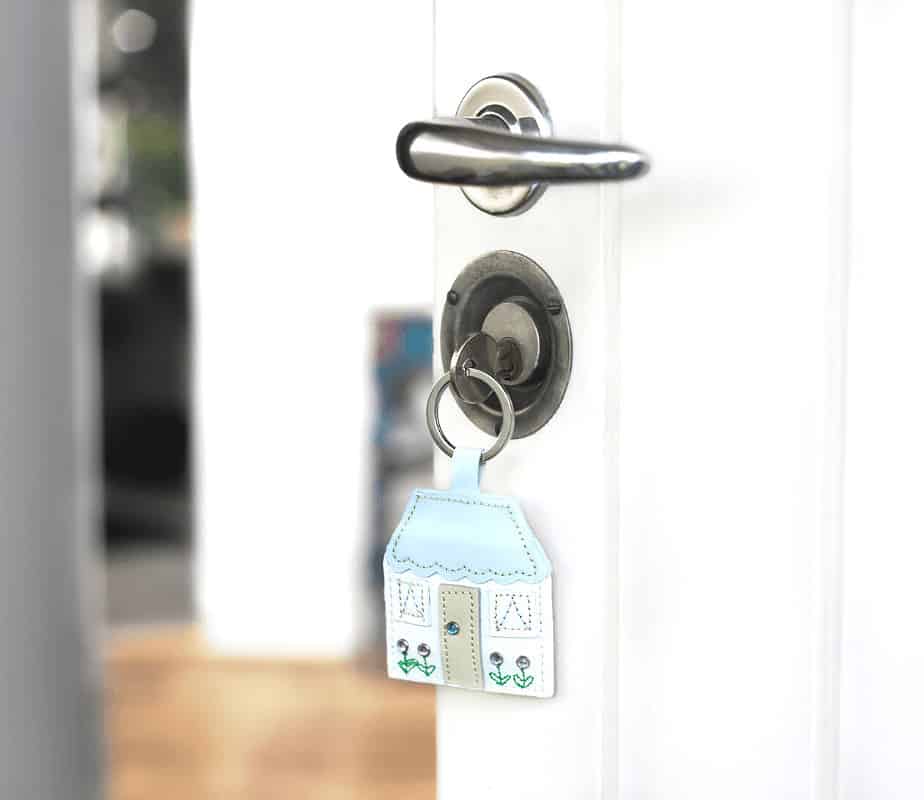Have you been surfing the net lately looking at homes for sale?
Do you catch yourself noticing houses you like as you’re driving down the street?
Have you started daydreaming about owning your own home?
If you can answer ‘yes’ to any of these questions, then read on. Because it sounds like you’re definitely starting to think about taking that huge giant leap into owning your own home.
Whether it’s because:
- Your rent is too high
- You’ve outgrown your current apartment or living arrangements
- You want to have freedom – no landlord to pay or answer to
- You just got married
- You’re expecting your first baby or another child
- You started a new career and/or have increased your income
- You’re moving to a new area
- You’ve been planning and saving for a while
- Etc.
There’s a ton of reasons why you might have reached this point. Even if it’s just because you know it’s the next obvious step to take in your life . . .
“OWNING YOUR OWN HOME IS AN AMAZING ACCOMPLISHMENT AND A GREAT LIFESTYLE CHOICE!”
But how do you know you’re really ready?
There’s so much to think about. It’s usually the single biggest purchase in a person’s entire life. This means it comes with a lot of considerations and risks.
You’ve probably heard plenty of homebuying advice already from parents, relatives and older friends who are more than happy to give you their opinions (oftentimes whether you ask for it or not – lol!).
That’s all well and good. But, only you can know if you’re really ready. So, take the quiz below to help you find out.

IF YOU CAN ANSWER ‘YES’ TO THESE QUESTIONS, YOU ARE READY TO BUY YOUR FIRST HOME
Question 1:
Do we have stable incomes? _ yes _ no
Have you been at the same company or in the same career for at least two years?
Are you staying at this same company or in the same career for at least two more years?
You need to make sure you have enough consistent income coming in to cover your monthly expenses that will increase when you own a home.
Question 2:
Have we saved for a downpayment? _ yes _ no
In 2022, the average down payment for first-time homebuyers was around 7%. On a $300,000 house, that’s $21,000. There are special loans with 0% down and others that go as low as 3% down. There’s also down payment assistance programs out there.
But, you might not qualify and the more down payment you put down, the better your mortgage payments will be.
“SAVE AS MUCH MONEY AS YOU CAN FOR THE BIGGEST DOWNPAYMENT YOU CAN!”
Putting down 20% is ideal. Then you won’t have to pay PMI.
Definition: PMI stands for Private Mortgage Insurance. It’s an insurance premium you’ll have to pay every month until your mortgage is under 80% of the home’s purchase price. So, if your down payment is less than 20% of the purchase price, you’ll be paying PMI.
Question 3:
Have we saved for the closing costs? _ yes _ no
These are all the costs you’ll pay when you officially purchase your new home on closing day. Typically, they come to around 2-5% of your loan balance. So, on a $300,000 loan balance (after down payment), that’s $6,000 – $15,000.
Here is a list of typical closing costs:
- Real Estate Attorney Fee
- Mortgage Application and Processing Fees
- Points
- Home Inspection
- Appraisal
- Title Insurance
- PMI (Private Mortgage Insurance)
- Homeowner’s Insurance
- Property Taxes
- Utility Bills the Seller Paid Ahead of Time

Question 4:
Is our credit score good? _ yes _ no
A score of around 700 is considered good. You can get approved with a lower score.
For example, there are FHA (Federal Housing Administration) loans that allow a credit score as low as 580 with a 3.5% down payment, or as low as 500 with a 10% down payment.
But, they have stricter guidelines. And having the best credit score you can before buying a home will go a long way.
“YOUR CREDIT SCORE IS SO IMPORTANT WHEN IT COMES TO BUYING A HOME!”
So, make sure to always be working on it. We have articles here at New Homebuyer Academy that give advice on improving it.
Generally speaking, the higher your credit score the better mortgage terms you’ll qualify for and the better your monthly payments will be.
Question 5:
Are our monthly debts low compared to your monthly income? _ yes _ no
This is called dti (debt-to-income) ratio and it’s an important number all lenders calculate as part of the loan application. It shows if your total monthly debt is too high compared to your gross monthly income. If it is, you won’t be able to get a mortgage.
Definition: Your DTI debt-to-income ratio is all your monthly debt payments divided by your gross monthly income.
This number is one way lenders measure your ability to manage the monthly payments.
Question 6:
Do we have an emergency fund saved? _ yes _ no
Financial experts recommend putting aside 3-6 months worth of expenses. In other words, if you were to lose your jobs today, you could live on this money for 3-6 months.
Question 7:
Will we be able to comfortably afford our mortgage? _ yes _ no
Your lender will check out your financial situation and calculate how much mortgage you can afford. But, you want to do your own calculations as well to make sure you can afford a mortgage payment every month.
If you’ve been paying rent already, this might not be a huge shock to your financial system. But, if you’ve both been living at home or have been living rent free, a new mortgage payment will be a huge change.

Question 8:
Will we be able to afford our new homeowners expenses? _ yes _ no
Experts say you should put aside 1-3% of the home’s value just for yearly maintenance expenses.
And that’s for maintenance and repairs. It doesn’t include all of the other expenses you’ll have as homeowners.
EXTRA ADVICE: Run the numbers! Whether you use a personal software program like Mint or you do it the old-fashioned way with a notebook and pencil – get used to taking charge of your finances:
- Know what all of your expenses are.
- Know your income.
- Know your debts.
- Know your investments.
- Know what your short-term and long term goals are.
“IDEALLY, YOU SHOULD BE SITTING DOWN ONCE A MONTH AND RUNNING YOUR NUMBERS!”
Note: These questions below are written as if you are a couple reading this. But, they can just as easily be answered if you are a single person looking for a home for yourself.
Question 9:
Have we figured out where we want to live? _ yes _ no
It might be close to family. Or across the country and close to an exciting career opportunity.
Wherever it is, you both have agreed on the area you want to start looking in.
Question 10:
Have we figured out our wants and needs in a home? _ yes _ no
This will definitely evolve as you start home shopping and seeing homes first-hand. But, you’ve started talking about it and are understanding what each of your preferences are.
Question 11:
Are we planning on settling into our home for the next five or so years? _ yes _ no
In general, a home starts to appreciate after five years. If your career plans and goals look like they could change a lot over the next few years, renting might be your best bet.

Question 12:
Are we becoming savers? _ yes _ no
Or at least one of you is. This doesn’t mean you need to become a miser. Or that you have to hide your money under your mattress and not have any fun.
But as a rule of thumb, consistently saving more than 5-10% of your income will help you become financially able to purchase a home and then become successful homeowners.
Some people refer to this as ‘paying yourself first’.
“LEARN TO BECOME AN EXPERT WITH YOUR MONEY!”
If this is not already your strong point, start teaching yourself good financial habits by reading books and blogs; listening to podcasts; being around other successful people; creating a budget; keeping track of your spending; learning about investing; and things like this.
Question 13:
Are we often and openly talking about our short and long-term goals together? _ yes _ no
You’re ‘on the same page’ as they say.
For you newlyweds out there – experts say how well you did planning your wedding is a good indicator of how well you’ll plan your life in general. Including buying your first home.
BONUS ADVICE: Have fun and enjoy the process!
Don’t get sucked into advice from well meaning elders who tell you that life is serious business. This is just old, worn out beliefs passed down for generations.
“THERE’S A NEW TRAJECTORY HAPPENING – WITH PLENTY OF EXCITING SCIENTIFIC RESEARCH TO BACK IT UP!”
First, it proves there’s no old guy in a long white beard sitting on a cloud doling out eternal rewards to people who have suffered and struggled or have taken life too seriously.
Instead, it shows our happiness is created in our nows – in all of the little (and big) moments of our days. When we enjoy and appreciate these moments, more come our way!
The good thing is you younger generation are already realizing this. You are breaking free from the bogus, rigid rules that have been circulating for centuries:
- You’re having more fun.
- You’re taking care of your bodies.
- You’re taking care of your mind.
- You’re getting out in nature.
- Etc.
You’re discovering what we’re all made of and how truly powerful each and everyone of us is!
What I’m saying in all this is – Enjoy this unique experience of buying your first home!
Just because everyone you know says it’s the most stressful thing they’ve ever been through, doesn’t mean it has to be for you. Yes, it’s a lot of money and a gigantic decision. Yes, there’ll be obstacles and hurdles to overcome. But, handle them with confidence and ease. And appreciate all the steps along the way!
Thanks for reading!
Get the FREE 14 page E-Book 10 Smart Ways to Get Approved for Your First Mortgage. And you’ll start getting our newsletters with tips and advice.
Stay tuned for more articles on all the ins and outs of homebuying for first-time homebuyers.
If you’d like to ask me any questions, email me anytime at: paula@michaelandsullivan.com.
Or call: 774-287-5852
Paula

